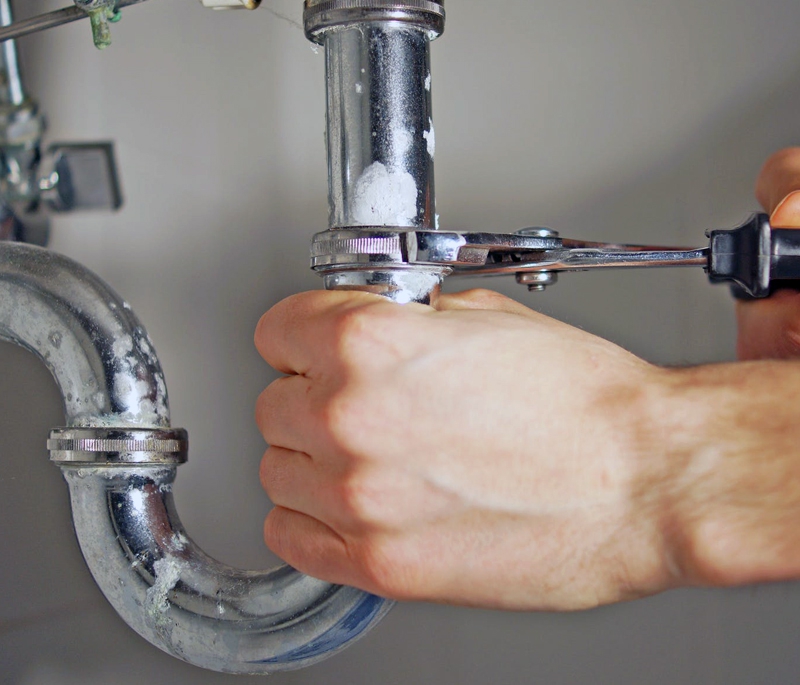Efficient Methods to Secure Your Plumbing and Shield Against Freezing in Frigid Conditions
Efficient Methods to Secure Your Plumbing and Shield Against Freezing in Frigid Conditions
Blog Article
The article author is making several great points relating to How to stop pipes from freezing during the winter overall in this post on the next paragraphs.

All property owners who live in pleasant environments should do their best to winterize their pipelines. Failure to do so can lead to calamity like frozen, broken, or ruptured pipes.
Switch on the Faucets
When the temperature declines and it seems as if the cold temperature will certainly last, it will certainly assist to switch on your water both inside your home as well as outdoors. This will maintain the water moving with your plumbing systems. Furthermore, the activity will reduce the cold process. Significantly, there's no need to transform it on full blast. You'll end up throwing away gallons of water by doing this. Rather, go for regarding 5 decreases per min.
Open Cabinet Doors Hiding Plumbing
When it's cool outside, it would be handy to open up closet doors that are camouflaging your pipes. Doing this small technique can keep your pipelines warm and also limit the potentially unsafe end results of freezing temperatures.
Require Time to Cover Exposed Pipes
One easy and great hack to heat up frigid pipelines is to wrap them with cozy towels. You can also utilize pre-soaked towels in hot water, simply do not forget to put on protective handwear covers to protect your hands from the heat.
Try a Hair Clothes Dryer or Warmth Gun
When your pipes are virtually freezing, your reliable hair clothes dryer or warmth weapon is a blessing. If the warm towels do not help dislodge any type of clearing up ice in your pipes, bowling warm air directly right into them might help. You might end up destructive your pipelines while attempting to thaw the ice.
When Pipelines are Frozen, shut Off Water
Turn off the main water shutoff instantly if you notice that your pipes are completely icy or almost nearing that phase. You will typically find this in your cellar or utility room near the heating system or the front wall closest to the street. Turn it off right away to avoid additional damage.
Do not neglect to shut outside water sources, also, such as your hookup for the yard home. Doing this will avoid added water from filling up your plumbing system. Regrettably, with even more water, even more ice will pile up, which will eventually bring about rupture pipes. If you are unclear regarding the state of your pipes this winter season, it is best to call an expert plumber for an assessment. Taking this aggressive strategy can conserve you hundreds of dollars in repairs.
All home owners that live in warm environments should do their best to winterize their pipes. Failure to do so can mean catastrophe like frozen, cracked, or ruptured pipelines. If the hot towels do not assist dislodge any settling ice in your pipes, bowling hot air directly into them might assist. Transform off the primary water valve instantly if you observe that your pipes are completely icy or practically nearing that phase. With more water, even more ice will certainly stack up, which will at some point lead to rupture pipes.
PREVENT YOUR PIPES FROM FREEZING THIS WINTER
A Leading Cause of Property Damage
When the weather is taking a deep nose dive into the cold dreary days, the risk of your pipes freezing and potentially bursting skyrockets. Unfortunately, during these cold dreary months, burst pipes are the most common denominator for property damage. The pipes that are most at the risk are those that are in areas where it is most cold in your home. For instance, pipes located in interior places such as basements, attics, and your garage. Unfortunately, that doesn’t mean that the pipes running through your cabinets or exterior walls can’t freeze. Good news, however, is that you can do things to help prevent pipes from freezing.
How to Prevent Pipes From Freezing
Once the temperature starts to drop during the winter, you should be taking the proper measures needed to ensure that your pipes stay warm and that there is circulation of water through them. Some steps that experts may recommend could go against your better judgement when it comes to saving water and heat. However, it would go without saying that when expenses are compared, damaged pipes could put a bigger dent in your wallet than a water bill.
What Can I Do?
Keep your garage door closed. This is very important, especially if you have water supply lines running through your garage. Open your kitchen and bathroom cabinets to allow warm air to circulate through them. Allow air circulation throughout your home. Keeping the interior doors open will once again allow the warm air to circulate inside your home. Ensure your thermostat is running the same temperature throughout the night and day. If you plan to be away from home during the cold months, set your temperature no lower than 55° F. This should provide enough heat to keep the pipes warm and prevent any remaining water inside the pipes from freezing. For more of a long-term solution, add insulation to attics, basement, and other crawl spaces around your home. By allowing your faucet to drip, it will alleviate pressure in the system. This is important because the pressure that is created between the blockage and the faucet can potentially cause the pipes to burst. Allowing the faucet to drip will prevent the pressure from building up, therefore keeping the pipes from bursting. Seal any cracks, openings, and crawl spaces around your home to prevent cold air from coming inside. This keeps your pipes-not to mention your home-warmer and less susceptible to issues caused by freezing temperatures. For the pipes in your home that are easily accessible, applying electrical tape to them might prevent them from freezing over. This is a quick fix, as you can apply the tape directly to the pipe. There are two options for heating tapes. One turns on and off by itself when it senses heat is needed. The other type of heating tape needs to be applied when heat is needed and removed when not necessary. If you have exposed pipes in your home, you can check this website to take a look at a few options that would be available at a shop near you.

Do you appreciate reading about Winterizing Your Pipes? Make a remark down below. We'd be glad to hear your reactions about this entry. We are looking forward that you come back again later on. Are you aware of somebody else who is sincerely interested in the topic? Please feel free to share it. Thank you so much for your time spent reading it.
Need Help? Hire Us Now! Report this page